Beyond the Raisin: The Incredible Brief Life of Lorraine Hansberry
Daughters of Lorraine Podcast Season 2 Episode 1
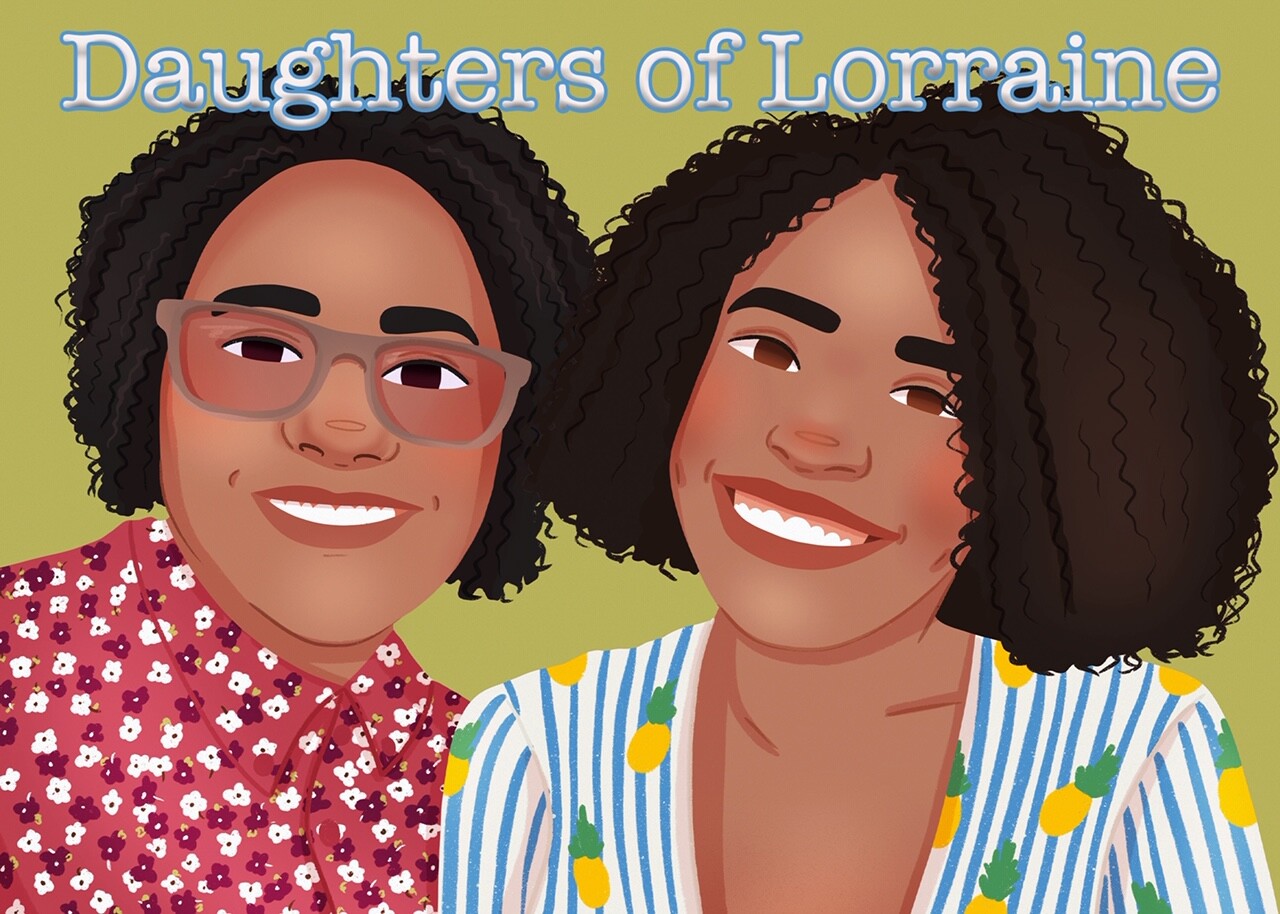
Daughters of Lorraine Podcast logo by Clarissa Bittes.
Leticia Ridley: Welcome to Daughters of Lorraine, a podcast from your friendly neighborhood Black feminist. Exploring the legacies, present and futures of Black theatre. We are your host Leticia Ridley...
Jordan Ealey: And Jordan Ealey.
Leticia: On this podcast we will discuss Black theatre history, conduct interviews with local Black theatre artists and practitioners and discuss plays by Black playwrights that have our minds buzzing. You definitely won't want to miss this. So stay tuned.
The fact that she was so heavily entrenched in being on the ground that it is important to me, and to us specifically, that we situate her not just as the mother of Black Broadway, but also as the Black radical leftist thinker that she really truly was.
Jordan: Born 19 May 1930 in Chicago, Illinois, playwright, writer, and leftist activist Lorraine Hansberry was a gift to the world. Though her life was brief, she made an incredible impact on the American theatre landscape as her legacy was cemented by her play A Raisin in the Sun, becoming the first by a Black woman to reach Broadway. Since its debut at the Ethel Barrymore Theatre on 11 March 1959, it is safe to say that Black theatre and Raisin are nearly interchangeable as it is impossible to be a Black theatre practitioner, scholar or lover without encountering this tour de force of a play. But despite this indelible legacy, Hansberry remains primarily tethered to this one play of hers without much knowledge of her artistry and life beyond Raisin.
Leticia: Today's episode is dedicated to this fore-mother of Black theatre and to this podcast. We dive into Lorraine Hansberry's life, legacy and art, discuss her other works of theatre and literature. Situate her in the often masculinizes Black radical tradition and we answer a question we know that you are all dying to hear us talk about. What makes us her daughters?
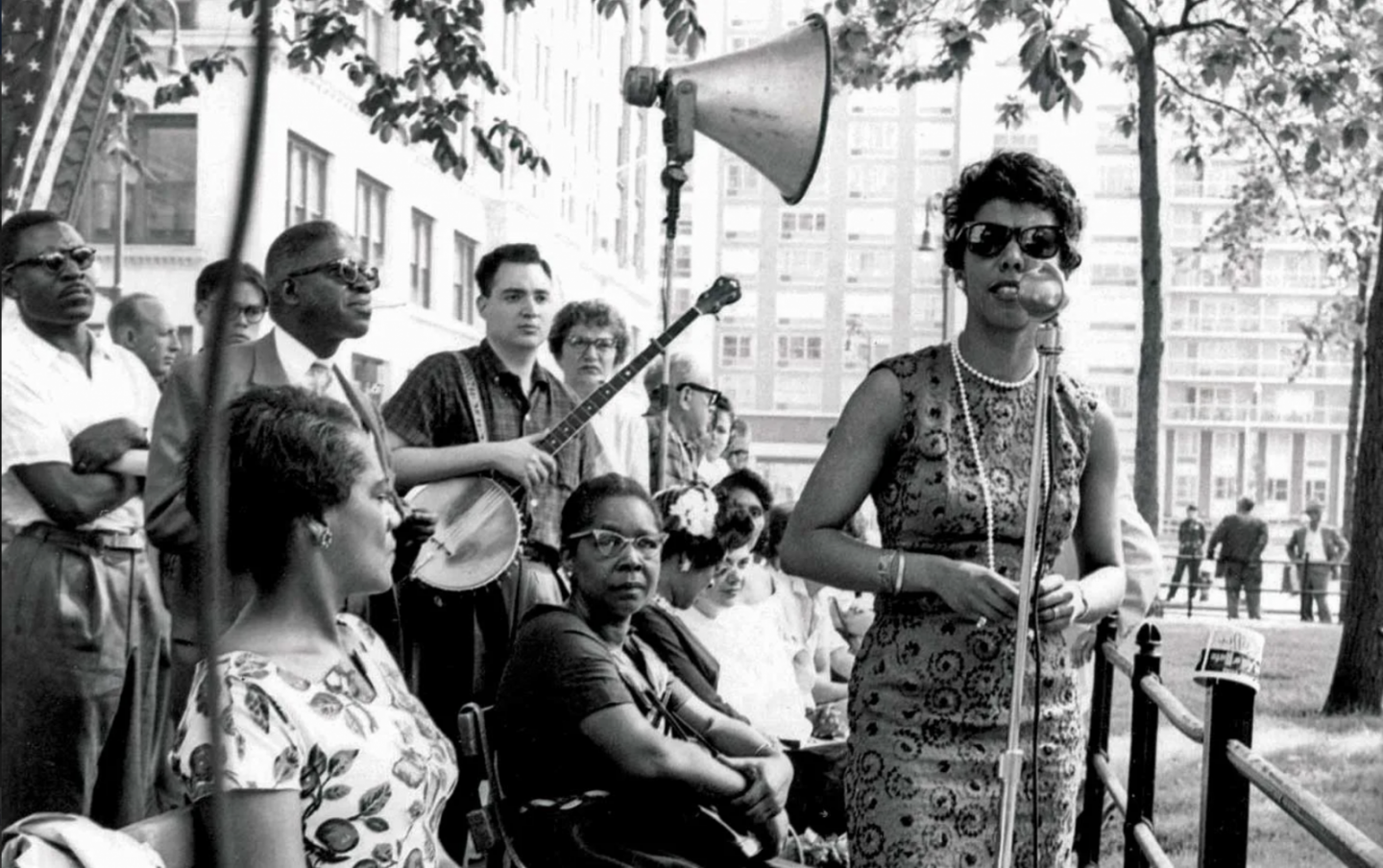
Lorraine Hansberry at an NAACP rally in New York City in 1959. Courtesy of Joi Gresham and the Lorraine Hansberry Literary Trust.
Jordan: Welcome back y'all to Daughters of Lorraine. We've been gone for a minute but we're back with a jump off. Oh yes, yes, yes, it's been a while. So Leticia, what's been going on with you?
Leticia: You know, just in a global pandemic and the usual, being Black in America.
Jordan: Yeah, sounds about right. I get that. But, we're making it do what it do.
Leticia: Yes, yes, yes. It's actually apt that we return with season two of Daughters of Lorraine with the fore-mother herself, Lorraine Hansberry.
Jordan: Absolutely. Absolutely. I can't help but wonder how she would be reacting during this time. With her work, with her activism, with her intellectual prowess. I imagine that she would have some very insightful ways of approaching these converging pandemics that we are living through right now. You're right, it does feel particularly apropos that we start off our next season with this very overdue, I would say episode about our podcast name sake.
Leticia: Yeah, I agree with everything you say. I imagine Lorraine Hansberry would be on the streets creating art, really on the Twitter streets even. Snatching people by the necks, letting them know that we will not stand for the continued oppression of Black people and just people at large, globally. But yeah, let's dig into why we chose Daughters of Lorraine.
Jordan: Yeah.
Leticia: You all might think that I came up with the name because as I've said multiple times on this podcast, I am a fan of Lorraine Hansberry. But no, it was not I. Historically I am terrible with titles, so Jordan is actually the one who suggested Daughters of Lorraine for our podcast.
Jordan: Yeah, that was me. That was all me. But no, seriously it's so funny that we actually started this podcast actually because of Leticia had a project. You were taking a digital humanities class. As y'all may know, we are both doctoral students at the University of Maryland and Leticia had to create a podcast for her final project and asked me if I would be her guest in that project. We both had so much fun doing it. It wasn't even about Black theatre, it was about Beyoncé. Another person we both admire a lot. In thinking of a name, I just wanted to consider the things that we both are both committed to. So we are both committed to Black feminism.
Jordan: We are both undeniable lovers of Black theatre and I wanted to think about the people who have those commitments in their life and in their work. So there's so many people that I could've chosen that have that. You can go all the back to lynching dramatist like Angelina Weld Grimké or Georgia Douglas Johnson which we talked about last season. Or you could have someone like Ntozake Shange who is absolutely a Black feminist intellectual thinker, poet, scholar, everything that you could imagine. You could have someone like Alice Childress. For me, Lorraine Hansberry is somebody who we all know, but we all don't know. It made sense that she was the woman that we named ourselves after because she just made such a mark on Black theatre, despite passing away so early on in her life and in her career, that it just made sense. To me there couldn't be anyone else other than Lorraine Hansberry. Also, the fact that Leticia really admires her, specifically A Raisin in the Sun, well that just made it better icing on the cake.
Leticia: Yeah, I just think she embodies a Black feminist politics to me. She was a radical before her time and a lot of people don't know that side of her. Her leftist politics, she was deeply committed to. At the same time, she wasn't someone who was necessarily perfect in her politics or how she lived her life. I think that's the richness of Black women's lives that we often don't get. So I just appreciate Lorraine Hansberry because she personally made a mark on me. She is one of the reasons I decided to come back to graduate school and one of the reasons that I call myself a Black feminist because I see Beneatha as someone that I recognized. I was like, I have to know more about this woman. But before we get into the Raisin because of course we have to discuss Raisin, let’s just give a quick overview of Lorraine Hansberry's life. What are the big markers? What things do folks listening may not know about her that can inform how we read her dramas?
Jordan: Yeah. So this podcast also is inspired by a book that both Leticia and I read and were like oh my goodness, there's so much we don't know. That book is Looking for Lorraine by Imani Perry who is a professor at Princeton University. Imani Perry is the author of several incredible books that we would highly recommend you checking out. But in particular, we're both drawn to Looking for Lorraine obviously because we are both Black theatre scholars, but also because she was a Black feminist intellectual and like Leticia said, was undoubtedly committed to that politic in her life and not just in her art. So, in reading Looking for Lorraine, there was so much that I discovered about Lorraine Hansberry that really cemented her in my mind as an inspiration for what we do here on this podcast, but also in our scholarship and our teaching and our own art. So, Lorraine Hansberry was born in Chicago Illinois which has a huge legacy of Black artists. I feel like they don't get enough love for the fact that they had so many wonderful artists, even to this day, that are still coming out of Chicago. We owe a lot to Chicago. But, she was born in upper middle class life. I think that that's very important.
Leticia: Yeah, Imani Perry talks about how she struggles with that reality of being really committed to Marxism and really trying to fight on behalf of the poorest of the poorest folk, the people that are most oppressed and having to juggle her middle class upbringing alongside her shifting, changing politics that her family necessarily didn't have. Her father was a public servant and was an activist in his own right. But it was in a certain strain of middle class politics that at times was countered to Lorraine Hansberry in her life.
Jordan: Yeah, a very compelling part of Looking for Lorraine is when Imani Perry actually discusses how Lorraine Hansberry stood in direct contradiction to her parents’ investment in nationalism. This American nationalism, this citizenship, this Democratic principles that oh, we are citizens of this nation, of this country and Hansberry really struggled with that. She very much was an internationalist. She was very much about diasporic politics, which we'll discuss more later, that emerges in her plays. But I feel like I personally connected to that because I grew up a similar way to Lorraine Hansberry.
Jordan: My parents were not landlords, but I did grow up in a particular Black middle class life and having to really consider, especially in the last few years as Leticia could probably attest to, becoming a lot more radical in my thinking, is that sometimes it comes into confrontation with the ways that we grow up. I mean, even if you didn't grow up middle class, there's still this particular way that if you work hard or if you do these things, you'll be a citizen. You'll be a part of the American dream. You too can achieve. So, especially as we look forward and I say that in jest, to this 2020 presidential election, it's important to think about all that Lorraine Hansberry taught us about being anti-colonial, about being anti-capitalist, and about standing in solidarity with colonized subjects. That was indirect confrontation with what her parents taught her and how she herself saw the world.
Leticia: I think what you're pointing to is, we don't consider Lorraine Hansberry and we being theatre historians, dare I say like Black studies as Lorraine Hansberry is someone who is deeply entrenched in leftist politic akin to like a Richard Wright. I'm always curious and I always wonder why do we turn oftentimes to these men, Black men in particular, as sort of figure heads, as activists movements that Lorraine Hansberry falls outside of that because she is so deeply embedded within the theatre. What you'll see is with like Raisin and also A Sign in Signey Bruester's Window is that she's also invested in the mainstream and that these shows are on Broadway.
Jordan: Right. Yeah. That's also something that comes up in Looking for Lorraine where Lorraine Hansberry deeply wanted to be famous. She wanted notoriety. She wanted people to read her stuff. She wanted her shows to be produced on Broadway and she wanted folks to know who she was. That kind of want for a celebrity or that kind of want for fame is the contradiction. I don't think that that makes her any less of a radical thinker. But I think it makes her someone whose living in the world and who—
Leticia: It makes her human.
Jordan: Right. But it also embodies what we were talking about earlier with her growing up in a particular way. I mean, it still seeps through no matter what. Even as you try to move away from that, it can still affect you in those particular ways. I appreciate Imani Perry being reflective about that in Looking for Lorraine, because oftentimes we over romanticize particular parts and I appreciate Looking for Lorraine and the work that Imani Perry does in that. For holding all spaces for who Lorraine Hansberry was. She didn't have perfect politics. She wasn't this pure subject of Black radicalism, but at the same time, she gave us a model of how we can approach Black theatre from this Black radical stance. That to me is so much more important or not so much more, but it exceeds even the limits I placed upon her. I love that you brought up this idea of why do we look to men for these Black radical politics, because it makes me think of one of our most notorious Black men in theatre.
Leticia: Baraka? Mr. Baraka who was very, very critical of Raisin.
Jordan: Extremely so.
Leticia: But a few years after Lorraine's death, this was actually doing some really radical stuff that I couldn't recognize.
Jordan: Exactly.
Leticia: Growth. "Growth," as we quote Kelly from Insecure, "You know what that is? Growth." But, I do think that that's interesting because Black women often get left out of these Black radical politics. There's a lot of Black feminist scholars who have done that work of recovery that we don't want to overlook for doing that work. Like Carole Boyce Davies has written about people like Claudia Jones.
Jordan: Mary Helen Washington.
Leticia: Right. But it is interesting that we only know Lorraine Hansberry as the first Black woman to make it to Broadway and nothing else. Not about her Black radical politics. Not about the fact that the FBI was watching her. Not about the fact that she was queer and struggled with her queerness. The fact that she was so heavily entrenched in being on the ground that it is important to me and to us specifically that we situate her not just as the mother of Black Broadway, but also as the Black radical leftist thinker that she really truly was.
Jordan: Yeah. So on that note, let's shift to the plays. Let's go to the plays. So let's just start off top with the play of the play, my favorite play, A Raisin in the Sun.
Leticia: Soyica Colbert and her book The African American Theatrical Body, refers to A Raisin in the Sun as the Black play. I think that's a great place to start.
Jordan: So, 1959, Lorraine Hansberry. Broadway. Ethel Barrymore Theatre. They had just transferred from the Belasco theatre on 19 October 1959.
Leticia: For those who may not have read Raisin, Jordan, what is Raisin about? What is the essence, do you think?
Jordan: So Raisin in the Sun is a family drama. It focuses on the younger family who live in a tenement in Chicago Illinois. The patriarch of the family has recently passed and he has this large sum of money that's coming as a result of his unfortunate death. It's Mama's money. Mama, Lena Younger's money, but there's a particular promises that have been made for that money, one of those being that a portion of it will be used for Beneatha Younger, who is the youngest daughter of the family, to be sent to medical school. But Walter Lee Younger who is the oldest son, also wants the money for a business venture that he is trying to get in on and that creates conflict within the family.
Jordan: Although this play's been around for a very long time, I won't spoil it here. But just know that things come to a head and it leaves us with a lot of questions about the family's life and what's going to happen to them and also the patriarchal politics I think of Black family life and the contradictions as well. I also forgot to mention that also, momma wants to use that money to move out of their building and move to a house in the suburbs. So that's actually a very important part of the plot. What I appreciate about Lorraine Hansberry's work is, I will guarantee you, there's no family drama specifically by Black playwrights, that hasn't been affected by the legacy of A Raisin in the Sun.
Leticia: Yeah. Something else I want to highlight about Raisin in the Sun is, Imani Perry does this great job of connecting it to Lorraine Hansberry's actual life. So as Jordan previously mentioned, Carl, her father was a landlord. In 1937, he had this big fight, Lorraine Hansberry was seven, where he was trying to purchase this brick building that was racially segregated. Meaning Black folks could not buy this property. The neighborhood association had decided that they were not going to sell to any Black families. But Carl decides to work with the NAACP to fight this restricted policy. This did not end well for the Hansberry family. What happened Jordan?
Jordan: Yeah, when they actually were going home, there was a White mob that came outside of their door and as they were being spit on and hit and cursed out as they're walking to school, just complete brutality of their quotidian lives, which we know often happens to Black people. But when they were at home in the evening, her mother had to actually protect the home with a gun.
Leticia: Yeah. I think it's so important that it's her mother. Because as Imani Perry notes in her book, is that her father was often working. So he was out of the house. So it was actually on the shoulders of the matriarch of the family to serve as that protective force. I think we can see that reflected in Mama in A Raisin in the Sun.
Jordan: Even Beneatha, right?
Leticia: Well yeah.
Jordan: You can tell that event, because Lorraine Hansberry writes about it later on, really affected her in her life. So even between momma and Beneatha who often come into conflict throughout A Raisin in the Sun. There is a particular way that Beneatha is empowered and I would definitely say that has to do with watching her mother throughout her entire life be this strong Black woman. We can problematize that. But she's a strong woman. She has strong convictions and even if momma and Beneatha don't have the same convictions, the fact that they both stand tall and steadfast in them is interesting. Right?
Leticia: Yeah, it's so interesting that in 1981 when the FBI went to go see Raisin, they were like, "Nothing to see here, girls. It's fine. It's just a regular family drama." But—
Jordan: No communism. There's no communism here.
Leticia: But I actually that radical politics like you said, lies in Beneatha. I wonder if the FBI potentially seen A Raisin in the Sun and didn't recognize it within a Black woman. That a Black woman perhaps could be leading as they would say, communist rhetoric within a play. I'm just over here speculating, but I wonder if that framed how the FBI was looking at it. I also think it just shows the skill and talent of Hansberry to just embed these deep politics within A Raisin that may not be recognizable to everyone. But that we can, I can, you can, folks can look at it and actually know it's talking about this very radical particular thing. Even disguised within a home, within a family that they're just trying to move and trying to figure out how to go on after the death of their patriarch.
Jordan: Absolutely. The fabled or legend has it, I should say that the original ending of A Raisin in the Sun pre-Broadway, featured the Younger family with guns to protect themselves after they moved, right?
Leticia: Yep.
Jordan: That's the legend.
Leticia: The legend is it closes, the last scene is all them on the couch with guns. I would love to see A Raisin staged with that scene added back. I would just imagine. I don't know if American theatre's ready for it, but I would just love to see how that would shift our experience of the entire play.
Jordan: For those who may not know, A Raisin in the Sun was actually turned into a musical in 1973. The music is by Judd Woldin. The lyrics are by Robert Brittan and the book is by Robert Nemiroff who is Lorraine Hansberry's ex-husband and Charlotte Zaltzberg. It actually won the Tony Award for best musical. It was so interesting to me to find that out because it was something I didn't even know. But for more information about that, musical theatre scholar Donatella Galella in her book America in the Round, actually has a great chapter about that pre-Broadway try out at Arena Stage in Washington DC. I just thought it was interesting because I don't know that I could see this play as a musical, but it did well enough to go to Broadway and did well enough to win a Tony.
Leticia: So let's shift to Lorraine Hansberry's second play on Broadway, The Sign in Sidney Brustein's Window. It premiered 1954 on Broadway and it was on Broadway while Lorraine was dying from cancer.
Jordan: Right. Yes and it actually was a huge difference than A Raisin in the Sun, in that the views for it were quite mixed and it struggled a lot both to get to Broadway but also when it actually was on Broadway. One of the huge critiques, especially that Imani Perry leaves out in her book, is that a lot of people didn't think it was a Black play. It was called a Jewish play because it focused on Sidney Brustein, who was a Jewish character. It did receive revival in 2016 at the Goodman Theatre in Chicago, which is very appropriate, but that production actually received really good reviews. So what's Sign in Sidney Brustein's Window about?
Leticia: So, it's basically about a man named Sidney, who's a formal radical, who finds himself enthralled with this political candidate that he feels aligned with his radical beliefs. But, as we know, once the politician gets elected or in our own lives, in the play, they do not always necessarily live up to the promises that they made. So essentially that's what happens in the play and then Sidney's grappling with what this means, because he puts so much energy behind this political candidate who essentially just lets him down because he essentially becomes co-opted by the system.
Jordan: Yeah, it seems to be a critique of the government system but also this kind of White liberalism that is inherent to the play. She's again, extremely forward thinking, extremely ahead of her time in that she's thinking about the contradiction of these candidates who like you said, make these promises and who get pushed to the left only to actually achieve those positions and not actually make any radical or progressive change at all. I think we're struggling with that right now too as we think about the presidential election and the conversation between leftist folks and folks who would say that they're more left than they actually are. I do wonder what A Sign in Sidney Brustein's Window would even look like right now in 2020. How would that be received as a play? 2016 wasn't that long ago, so it would probably do well. But I do wonder in this particular political climate, how this play that is really embodying a lot of the conversations that are being had today, would be received by a general Broadway audience.
Leticia: Yeah, I think this play is I guess so potent for me when I read it, was because of for me, this interrogation of Whiteness and how it circulates. Also, in the play there's these three sisters, Iris whose Sidney's wife and an actress who frequents a psycho...
Jordan: Analysts, right?
Leticia: ...analysts, yeah. Psychoanalysts. She has a sister named Mavis, which is your bougie housewife who is very unhappy in her marriage and tells everybody how to fix their own life. She has a younger sister named Gloria who's a prostitute but calls herself an international model and she is actually dating the only Black character in the play who is named Alton who considers himself a communist. So interestingly enough, Alton confronts Sidney later on in the play about not telling him that Gloria is a prostitute after he proposed to her and it really actually magnifies the contradictions within Alton.
Leticia: That he is someone who faces his own subjugation at the hands of other people daily, but at the same time he can't recognize that in Gloria and approach her with empathy. He sees his relationship with Gloria and her being a prostitute as sort of like taking something away from him. With Lorraine Hansberry I would say, is trying to get us to think about Alton's relationship to whiteness and wanting to garner something that White folks have and how he's navigating the precarious position of being Black in America. At the same time, holding him accountable for his blatant patriarchy in treating Gloria and denouncing her because she is essentially a sex worker.
Jordan: Yeah, she is a sex worker. I think also that's a part of Lorraine Hansberry's forward thinking in her feminist politics because here we have a play on Broadway where we're thinking about sex work from a Black woman.
Leticia: In 1964.
Jordan: In 1964. It probably certainly is the first time that a political topic like that is brought up. But I do think that it speaks to what will come later in specifically Black feminist discussions about sex work which leads to other conversations about sexist commodity, the Libidinal Economy, that sex workers existed. It speaks quite clearly to me about Lorraine Hansberry's commitment to feminism and also a commitment to a feminism that isn't always just focused on things like voting rights or equal pay. But actually how do we think about sex workers as laborers and how do we think about patriarchy even if that patriarch is a Black man? I think that she's very interested in interrogating the complicated nuanced ways that issues appear in our lives without just being like, oh this is just about Blackness. This is not just about Blackness, it's actually like you said, about White supremacy and about whiteness but also about patriarchy and how Alton is implicated in that system through wanting to control Gloria and not being able to accept quite frankly her employment as a sex worker.
Leticia: Yeah and I think it's also just Lorraine Hansberry reflecting her own young activist life. She's still very young at this moment but reflecting on those early years of being a part of the communist party and grappling with the shifting time and changes and this hope that folks had in the communist movement that never lived up to its promise. I think she's also working out those ideas—
Jordan: And anxieties.
Leticia: ...and anxieties of it. As she realizes and understands that she is going to die soon.
Jordan: All right. We've discussed The Sign in Sidney Brustein's Window and now we're going to discuss two of her other works. So that's Les Blancs and To Be Young, Gifted and Black. So, Les Blancs. She began working on this play in 1960. The title Les Blancs is actually a reference to Jean Genet's play, The Blacks. Leticia what's this play about?
Leticia: It's really a story based in a fictional African country and essentially there's three brothers at the center of the story whose actually trying to deal with inheritance, home, what that means. They return home, well not all of them return home. But one of them return home from England because their father has died, seems like a theme to me of Lorraine Hansberry's work and he is confronting why he left. He now lives in London. He has a White wife. He is reuniting with his two brothers. One of the brothers is really invested in becoming a priest so he's really entangled with the priesthood and then the last brother, which is only a half brother, is actually not the father's biological son. Their mother was raped by—
Jordan: A British settler right?
Leticia: Yeah, a British settler, that's the language I was looking for. Thank you. So he's actually really trying to grapple with what that means and interesting enough he is the one that feels the closest ties with his father in the land of this fictional African country.
Jordan: Yeah. This also really connects to Lorraine Hansberry's connection with diasporic politics. You see that back in A Raisin in the Sun. We didn't mention Asagai, that was her favorite character in A Raisin in the Sun. So she has this connection to the African diaspora broadly conceived, not just simply how it is in the United States, but also how it exists globally. So I think that Les Blancs is a particular way that Lorraine Hansberry is trying to think through these very complicated ways that Blackness emerges outside of America and how these men in this fictional African country are dealing with things like whiteness.
Leticia: Colonialism.
Jordan: Colonialism. Exactly. So in particular there's a character that comes to the country. A White liberal that is in conversation with Tshembe who is, I would say the closest thing to a protagonist that this play has.
Leticia: He's the one that comes back from London.
Jordan: Right. Again, we get the same theme that we had about white liberalism. That we saw in The Sign in Sidney Brustein's Window about how White liberals often think that they are a lot more progressive, a lot more radical than they actually are. Abioseh, the priest also thinks that this priesthood will save Africa or this African country and it doesn't. It all fails. So I think that Lorraine Hansberry is again, problematizing this idea of whiteness and White supremacy and the ways it can seep into our lives in these ways that we think are going to help us, but they only end up hurting us.
Leticia: Yeah, absolutely. Absolutely. This is the play that I was really looking forward to seeing, because it was planned to go up at Shakespeare Theatre Company in Washington DC in 2021, but as you know, theatres are on halt for now. But I'm hoping, I'm really hoping that they still are committed to doing the play because it is one of Lorraine Hansberry's play that often does not get produced. I believe in National Theatre has done it in the past. But I think it's the language of it, it's just so beautiful. So if you haven't read it, the story, it's very compelling. I had my students read it when I taught. They love a good realism. They love a good three act play. But I think there are important themes and discussions that Hansberry raises that reflects similar things that we are talking about now.
Jordan: Yeah. Then a final work of hers that I just wanted to quickly highlight is, Young, Gifted and Black which is essentially a play about the life of Lorraine Hansberry. It is put together from her writings and her letters. Actually her ex-husband Robert Nemiroff, who was very committed to archiving her life, which is just a beautiful thing to think about, actually was conceived this play based on her own personal writings. It actually ran on Broadway from 1968 to 1969 and very importantly, the song Young, Gifted and Black by Nina Simone, who was a very close friend of Lorraine Hansberry's. I believe that she would say like, "They had girl talk about Marxism. Just stuff like that."
Leticia: How dope is that? To have Nina Simone be like, "Let me just write you a song real quick."
Jordan: Yeah. It's based off of that. I just wanted to highlight that play because I think it's just a beautiful work that is based on her.
Leticia: Yeah. It has been a journey. We are now at the end of the episode, but before we close, let me just ask you one simple question Jordan. What impact do you think Lorraine Hansberry has had on American theatre, Black theatre and even as teachers and scholars, theatre history at large?
Jordan: Huge question. But I think that Lorraine Hansberry gave us a blueprint for how to activate our political views in our art. She deeply, deeply believed in the power of art to be an inciting force for political change. She is someone who makes us realize that theatre has stakes. The work that we produce has stakes. We can't forego the political work that we are claiming to be invested in and not show that in the theatre that we produce. She gave us a model for how to achieve that and that to me is just so valuable for thinking through it, specifically this political moment. What about you? What do you think?
Leticia: So for me, Lorraine Hansberry really gave me personally a language to think about theatre as like you said, a critical space of inquiry. I think we owe so much to her as a theatre maker, as a theorist. The fact that her plays were deeply embedded in the political, illustrates for me that she was using theatre as a way to push a Black radical politic that may not have been perfect by any stretch, but she was actually just really trying to push the nation and people a bit further. I also think Hansberry was interrogating the same questions or similar questions that we are today.
Leticia: Colonialism, racism, capitalism. Frankly I would argue that she does it better than a lot of people do it. So my hope is, as we continue to look at her work, we don't throw her away because she is one of the most economical Black writers. But we sit within her now or within her work, now more than ever and appreciate the instructions and the brilliance that she offered to us in her short, short life. It's such a gift and here at Daughters of Lorraine we just hope and we recognize that we sort of stand on her shoulders and we hope that we are making her proud. That the work that we're doing is helping us also to push the conversation a bit further.
Jordan: Absolutely. We thank you Lorraine Hansberry.
Leticia: We thank you. Ashé.
Jordan: Ashé.
Leticia: All right. So we are going to continue I guess a tradition that we have here at Daughters of Lorraine, established last season about recommendations. This episode has been all about Lorraine Hansberry. But we also want to give you some supplemental text that may not necessarily be about Lorraine Hansberry, but will help you to contextualize her work and to think more about politically engaged theatre. So some of the plays that we would like to suggest, we have Trouble in Mind by Alice Childress, who would've been the first Black woman to go to Broadway, but she refused to change the ending of her play, which is very interesting. So she's a contemporary of Lorraine Hansberry's that we think we should include. Then we also have Beneatha's Place by Kwame Kwei-Armah. This play is a continuation of Beneatha Younger's story that was started in A Raisin in the Sun. Then finally we have The Bronx is Next by Sonia Sanchez, someone who also embodies the same kind of political work that Lorraine Hansberry gave.
Jordan: For our critical text, of course we are going to suggest Looking For Lorraine: The Radiant and Radical Life of Lorraine Hansberry by Imani Perry, Black Marxism by Cedric Robinson, and a forthcoming book that is actually not available just yet, Radical Vision: A Biography of Lorraine Hansberry by theatre historian, theorist Soyica Colbert. Thank you so much for tuning into Daughters of Lorraine.
Leticia: This has been another episode of Daughters of Lorraine. We're your host Leticia Ridley...
Jordan: ... and Jordan Ealey. Our next episode will be dedicated to Black musical theatre as we discuss two productions that we got to see pre-pandemic. You definitely won't want to miss that.
Leticia: The Daughters of Lorraine podcast is supported by HowlRound Theatre Commons, a free and open platform for theatre makers worldwide. It's available on iTunes, Google Play, Spotify, and Howlround.com. If you're looking for the podcast on iTunes, Google Play, or Spotify, you will want to search and subscribe to HowlRound podcasts.
Jordan: If you're looking to connect with us beyond this podcast, please follow us on Twitter at @dolorrainepod. That P-O-D. You can also email us at [email protected] for further contact.


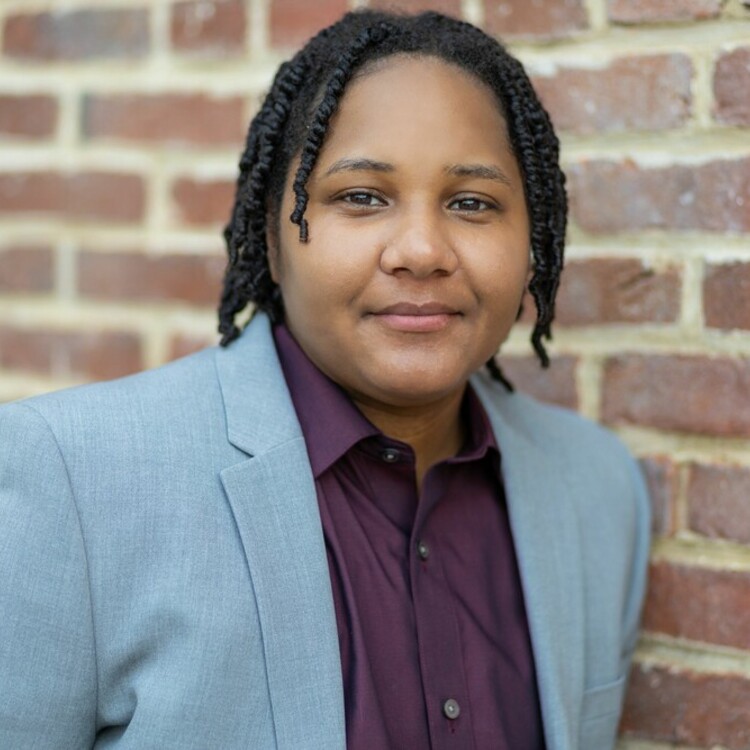
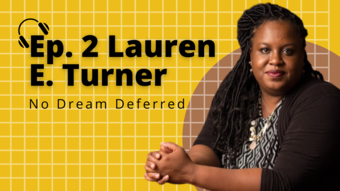


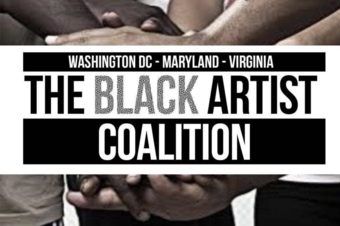




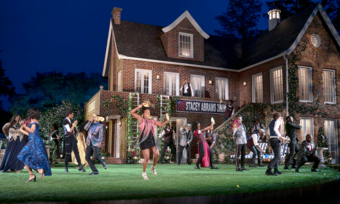

Comments
The article is just the start of the conversation—we want to know what you think about this subject, too! HowlRound is a space for knowledge-sharing, and we welcome spirited, thoughtful, and on-topic dialogue. Find our full comments policy here